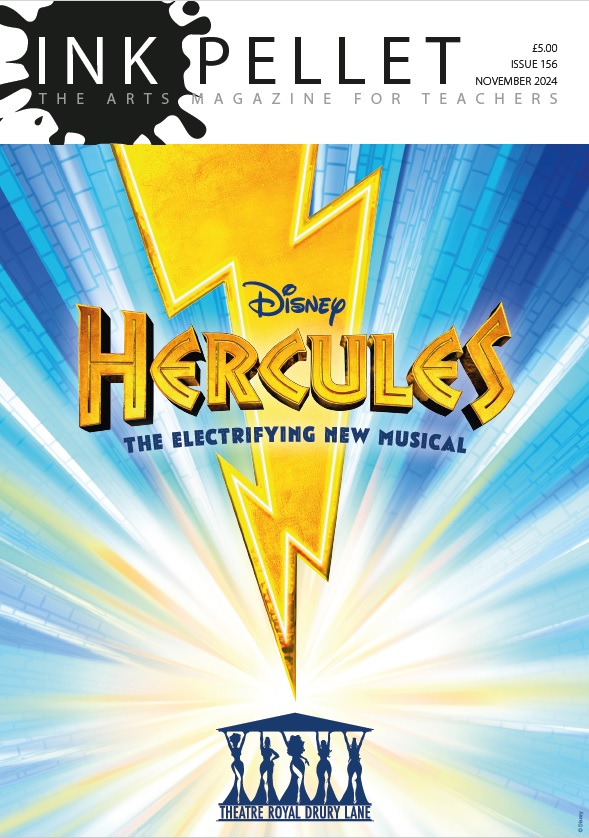Image by Johan Persson
Every child and their families deserve a day like this.’ This simple statement uttered by George Asprey, who plays Scar, received warm cheers of approval and applause. He had taken to the Lyceum Theatre stage with Nteliseng Nkhela (Rafiki) to welcome this special audience to the second autism-friendly performance of The Lion King.
The long-running Disney show was the first to produce an adapted performance last year in collaboration with The National Autistic Society, which had already started investigating ways in which young people with autism and Asperger’s – and their families – could enjoy live theatre too.
Now they are becoming a familiar part of the offering from many theatres: the RSC is producing an autism-friendly production of Matilda, the Marlowe Theatre is putting on ‘relaxed’ performances of its Christmas pantomime while the West Yorkshire Playhouse is offering a dementia-friendly performance of Irving Berlin’s White Christmas.
Theatres have come a long way since Heather Wildsmith, now the cultural development manager for the National Autism Society, got involved with the movement. Heather has been campaigning and supporting awareness of autism since her 18-year-old son was diagnosed with the condition. Like all good campaigns, this one started at grassroots level. Heather says: ‘Somebody with autism may be nonverbal or partially verbal and will make a noise rather than speaking their feelings; they could be anxious or really happy, and making a noise is the only way they can communicate.
They may also start rocking in their seat, or stand up.
‘Because theatre ticket prices are so expensive, and people often are making an effort to travel, sometimes for the weekend, they may consider an autistic person reacting in this way is spoiling their experience.
‘Families had come to us saying they had been to the theatre but had not had great experiences. This got us involved with the Ambassadors’ Theatre Group [ATG] and we had the first theatre industry conference for people in the industry to hear about autism and what could be done.
‘Disney approached us [the National Autism Society] because they had already done this in New York and wanted to bring it to the UK. They have really led the way but in America it was easier because the theatres are funded so richly. ATG have taken this by the horns in their theatres and now it’s a model.’
So, how is the performance made ‘autism-friendly’? Heather explains: ‘Everyone with autism is different so each person will be affected in different ways. Some of the adaptations won’t be noticed because the idea is you make as few adaptations as possible. In the performance, changes include reducing sound levels, taking out some really loud sound effects, removing strobe lighting.
‘In The Lion King geysers make a whooshing noise and some of these have been taken out; when the lionesses cry they pull out ribbons from their eyes to become their tears – with my autism hat on it looks like they are pulling their eyes out. Within the auditorium the lights are up a bit; and there is a noise level – a hubbub throughout. We deliver training for theatre staff and cast so they understand some of the issues around the condition. This costs money – and that can be a tricky thing. We talk about some of the language of theatre which is alien – stalls, as it may affect their concentration while they are performing. But the cast were absolutely fantastic – fascinated. And they really look forward to these performances – one actor said it is lovely getting feedback from the audience as you don’t often get it!
‘When the elephant comes up they start clapping which doesn’t happen in mainstream shows always. We have chill out zones with beans bags to de-stress and people can leave the auditorium as they need to.’
At the performance, you certainly know that the audience is there – there are noises which are clear reactions to the events around them; there is raucous laughter at Rafiki’s and Zazu’s antics; murmurs when the lights go up and down, and some calls of repetition of something that is said on stage. People move in and out of the auditorium; a handful cry, many wear ear defenders.
But while this show is for them; it is the wider family that benefit too. Heather says: ‘Families say it’s so lovely that other people understand, you didn’t have to explain. It didn’t matter if their child made a noise or got up. ‘Some families have lost a lot of confidence because of the public reaction to their child. When you have a young child with autism they grow up and they are no longer cute. Doing an autism-friendly performance has so many different bonuses: families can go out as a family and relax and enjoy it – and it’s great for the siblings too.
‘One family I know who went last year said, ‘All our lives we’ve been fighting against the tide and today we have been part of that tide. Another spent just 20 minutes in the auditorium and the rest of the time happy in the chill-out areas. For them that was a massive achievement.’
The importance of an autism-friendly performance is beautifully articulated by mum Lizi Jackson, a parent with an autistic child in a blog post (read the full account at: throughacceptinglimits. com/2013/04/15/hakuna-matata-on-a-sunday-afternoon).
In it she says: ‘I don’t know whether the cast and crew of Sunday’s performance realise quite what an important thing they did. This went way beyond allowing people with autism to experience a trip to the theatre. ‘What this performance did was to make us normal.’
My verdict
Tracey MacFarlane, who has mild learning difficulties, gives her verdict: ‘I felt happy at the start. I’ve never seen The Lion King at a theatre. This theatre is very old. ‘I like the ladies in the white costumes the best; and the people in the giraffe costumes, I liked the story – it was about Simba and his dad. I didn’t like the part with the hyenas; it was a bit scary. ‘The elephants were really good and I felt happy. They didn’t take any parts from the film out. ‘I would have liked the interval to be a bit longer because there was a long queue for the toilets. ‘I liked the flag they gave me. I’m going to keep it. I felt happy afterwards.’
For more details, visit The Lion King website at www.lionkingautismfriendly.co.uk The National Autism Society can be contacted at www.autism.org.uk.




